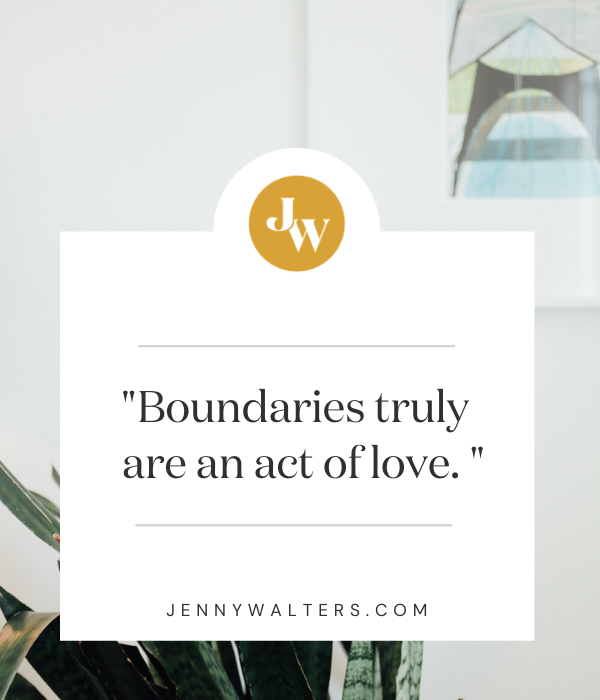Pride + Boundaries and How They Equal Love
It’s Pride month. The dictionary says this about the word pride: It’s “a feeling of deep pleasure or satisfaction derived from one's own achievements, the achievements of those with whom one is closely associated, or from qualities or possessions that are widely admired.”
Also, “consciousness of one's own dignity.”
Not to mention “confidence and self-respect as expressed by members of a group, typically one that has been socially marginalized, on the basis of their shared identity, culture, and experience.”
And lastly, “a group of lions forming a social unit.” (Aww!)
What a great word—it speaks to dignity, self-respect, and community.
There is also the history of Pride month to consider. It’s rooted in LGBTQ+ folks standing up and saying “no” to abuse, mistreatment, and living in the shadows.
In thinking about what pride means to me as someone who identifies as queer, I realized my most meaningful experience with it wasn’t a boisterous display during a parade, but a quiet decision within that led to setting the most meaningful boundary of my life.
It had been about two years since I had come out to my mom. My now-wife, Tina, and I had decided to get married. I was finishing up my Master’s degree in Depth Psychology and planning a wedding at the same time (which I don’t recommend).
I had never been happier and more miserable all at once.
I was happy because I was preparing to marry the love of my life and because Tina’s family and our chosen family of friends were all delighting with us in the preparation. Friends with scissors and sewing machines around the country were crafting DIY decorations for months in advance. Though our marriage would not be legal (Proposition 8 was still in effect), we were planning a big, glorious, gay wedding—a day of celebration and love.
And yet, I felt miserable because my Mom had no plans to attend. As a devout Catholic, she struggled with the news that her only daughter was queer and announcing it to the world with a wedding. Since coming out to her, we barely spoke. Our conversations were simply short phone calls where we stumbled through a few minutes of awkward chit-chat. I would test the waters by bringing up my life with Tina and our wedding plans, but I would be met with her subtle (and not-so-subtle) rejection every time.
I started to turn this rejection inward (I didn’t tell anyone this for a long time) and battled a nagging voice inside that told me I was doing something wrong, that I was wrong, and that my Mom was right. After a couple of years of this, I was depressed. I was hurt. I was confused and heartbroken.
And I missed my Mom.
For months and months, I wept on my therapist’s couch. One day, my therapist told me about Dan Savage’s advice to LGBTQ+ folks and coming out. “You come out. Then, let your family tantrum (if you have a family that is throwing a tantrum) for one year at which point you tell them to either get over it or say goodbye.”
I sat wide-eyed on the couch. I can do that? I can say no?
Realizing I could say no connected me to some power and agency inside. I found my pride. The anger I had turned in on myself for being ‘wrong’ changed directions. And anger, where boundaries are concerned, often has something to do with self-worth.
I decided enough was enough. I was done being rejected. I was done rejecting myself in order to protect myself from the feeling of being rejected. I was done tip-toeing around my mom in order to make her comfortable.
The process of setting this boundary was gradual. First, I set an internal boundary with myself with no plan of announcing it to her. I decided how many phone calls I could handle and for how long. Simply gaining clarity around what I would tolerate, and what I wouldn’t, brought me so much relief.
Also, I stopped trying so hard. I stopped working to persuade her to accept me which meant I stopped inadvertently apologizing for who I was.
A few months before the wedding, I traveled back to Kansas City to help my mom pack the final boxes from our family home as she prepared to move into an independent living community. Packing up the house felt like a seismic purge, and I suddenly lost my equilibrium. Every object held a memory—an invitation to try to understand my childhood, who I was, and how I got here.
While I was busy wondering if my Mom loved me or not while sorting through my Strawberry Shortcake doll collection, my Mom was working hard to keep the conversation as light as possible.
It was no wonder then, that after two years and then some of avoiding what was really going on between us, something had to give. When she asked me if I wanted to keep a VHS copy of Family Ties Vacation (remember when Mallory wondered aloud if they had toast in France?), I lost it.
“If you cared half as much about our relationship as you do those stupid VHS tapes we might actually have a relationship to speak of!” I shouted. She set the videotape down. Now I had her attention.
I let her know about my heartbreak. That I had tolerated her upset long enough and that it was time to either accept me and the totality of who I was or accept the loss of our relationship. I was no longer willing to mute myself to make her more comfortable while watching it quietly destroy our connection and me along with it.
She shared her fears—for my soul and my safety. She let me know how it confused her, how it didn’t make sense with how she had been raised and with what her church said.
I assured her my soul was intact, that we should worry more about the souls of people that use God to judge others than the souls of LGBTQ+ folks.
I argued. I cried. I was sarcastic. I was sincere. Throughout it all I felt deeply connected to a pride in who I was and who I loved. And then I said again, “You need to make a choice. Either accept me for who I am or let me go.”
I felt the tension of immense relief and grief swirl inside of me. I didn’t know what would happen next, but I felt so much better telling the truth, choosing self-love and acceptance, and saying “no” to the charade our relationship had become.
She went to church that night and prayed. When she returned we stood in her new, tiny kitchen and she told me she had made a choice. That is was the choice Jesus would make—to love me unconditionally.
She then put actions behind those words. While cleaning out my deceased dad’s office that weekend I found a few thousand dollars in cash hidden all over the place in various books and cabinets (having grown up in the depression my dad didn’t trust banks much - I have to thank him for making a task I was dreading a lot of fun, never knowing where another stash of cash might jump out!). When I handed the stack of old twenty dollar bills over to my mom she pushed it right back into my hands - “Use this for your wedding,” she said.
We had a farewell party for our family home planned for that evening. I let my mom know I wouldn’t be attending and why. My adoptive grandmother, a family friend who treated me as her granddaughter for decades, was attending. When she found out about my queerness and my engagement to Tina, she hung up on me and never spoke to me again. I didn’t want to say goodbye to our home with her there and would come by another time to do so.
My mom, all 82 years of her, drove over to her friend’s house to confront her about how she had treated me, that it was unacceptable, and that she was uninvited to our party. She could’ve just called her but she said it to her face - like a PFLAG protest of one, right there on the front porch, in the middle of Missouri.
My mom attended our wedding. After the ceremony, on our way back down the aisle she reached for Tina, pulling her in she kissed her cheek and said, ‘I love you.’ When we visited her a few months later she had photos from our wedding displayed throughout her new apartment. At the front desk she introduced Tina as her daughter-in-law.
I think about this story often, but especially around Pride month. It fills me with pride for the person my mom is and the choice she made. It fills me with pride for the courage I had to ask for what I needed. I’m proud of all the LGBTQ+ folks, of their courage and dignity in the face of families that reject them and don’t ever come around the way mine did.
My mom chose love. And it changed our relationship for the better, forever. I hate to think what would have happened if I hadn’t summoned the courage to choose myself over her fear. Boundaries truly are an act of love—an act that carves out space for us to love ourselves and each other at the same time.


